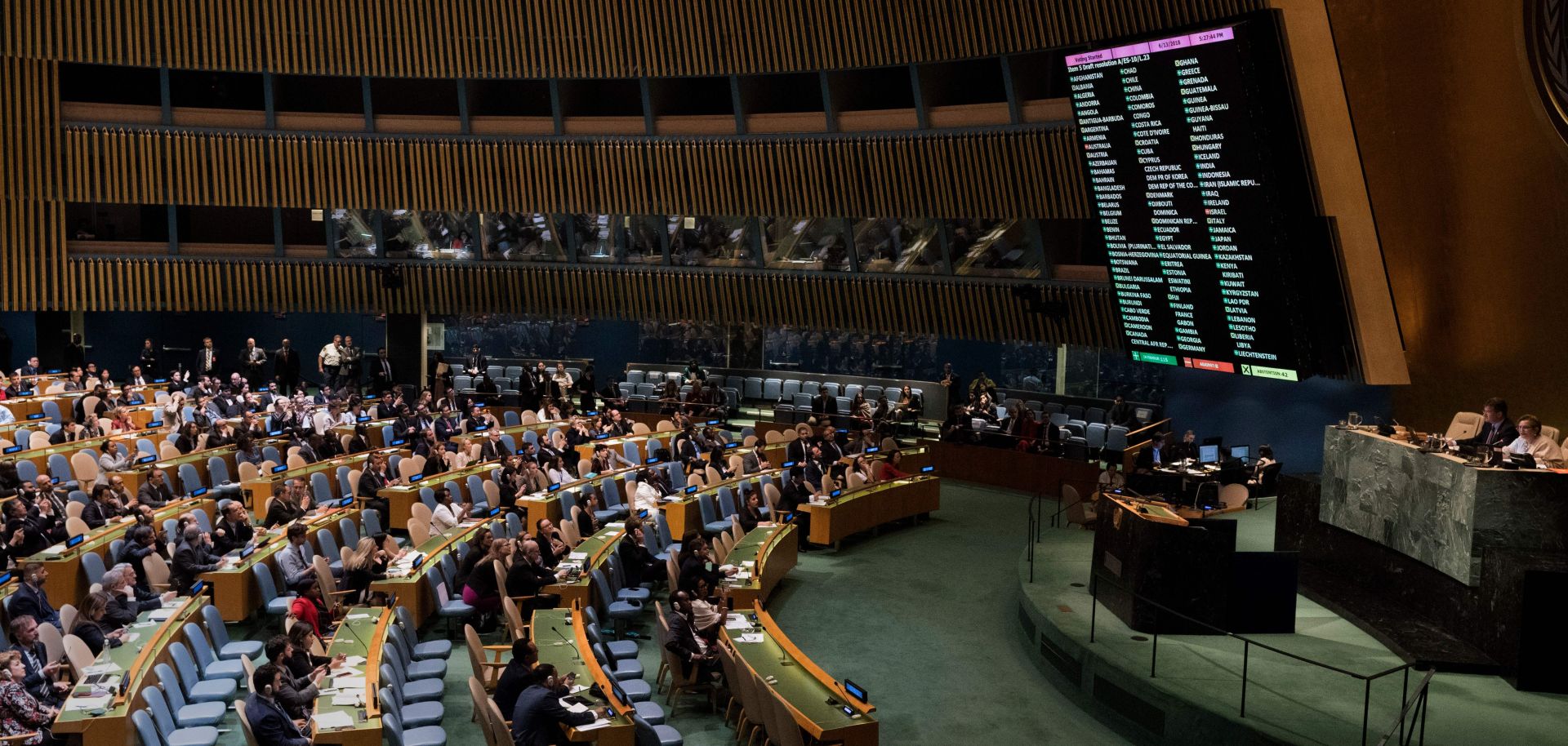COLUMNS
Challenging the Inevitability of the Liberal World Order

Jul 26, 2018 | 08:00 GMT

This picture shows a session of the U.N. General Assembly from June 13. Institutions like the United Nations, the World Trade Organization and others represent the liberal world order -- a global system that is not as inevitable as first believed.
(DON EMMERT/AFP/Getty Images)
Highlights
- In contrast to the ideas of some of its proponents, the liberal world order is not the destiny of all societies around the world.
- Those seeking to implement such an order have failed because they often don't recognize realities on the ground, occasionally leading to chaos.
- Acknowledging that the liberal world order is not inevitably for all of humanity is critical in improving our understanding of the world.
Subscribe Now
SubscribeAlready have an account?
